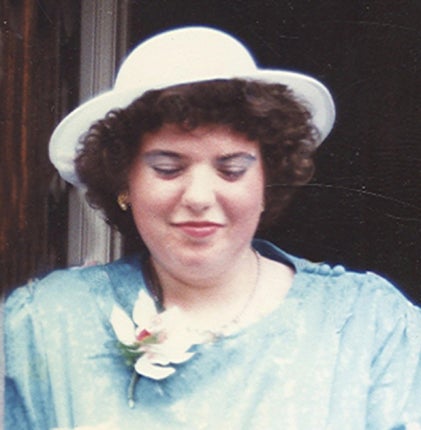Police thought suicide mother 'over-reacted' to gang attacks

"Common sense" should have led police officers to help a woman who killed herself and daughter in despair after enduring years of attacks on her family by a gang of youths, an inquest heard yesterday.
Fiona Pilkington, 38, and her 18-year-old daughter, Francecca Hardwick, died when Ms Pilkington set fire to their car in Leicestershire in October 2007. Police dismissed her complaints as "over-reacting", despite 13 calls for help in the year before she died.
Yesterday, Olivia Davison, assistant deputy coroner for Rutland and Leicestershire, criticised officers for ignoring Ms Pilkington's complaints and failing to "perform a protective role in society".
Ms Pilkington committed suicide after a sustained campaign in which local youths would throw stones and shout obscenities, assault her children and leave her family under siege in their home in Barwell, near Hinckley.
It was only after the death of Ms Pilkington and her daughter that the police changed their policy so that repeated crimes against disabled people were marked as "hate crimes" and given greater priority.
On the second day of the inquest at Loughborough Town Hall, Chris Tew, a former assistant chief constable of Leicestershire Police, conceded that the biggest problem had been the failure to link the incidents and to realise that they were prompted by the family's disabilities. But he defended the lack of prosecutions, arguing that Ms Pilkington was not prepared to take her complaints to court and that many of the incidents were not classed as crimes but as antisocial behaviour.
But Ms Davison repeatedly asked why "common sense and basic old-fashioned policing" had not taken over. "There are seven or eight acts of Parliament that are smack-on for dealing with the problems this family were facing," she said. "It must be a motivating factor in being a police officer to stop a situation like this. As an officer with past experience, you arrive at that conclusion in common-sense terms."
Addressing Mr Tew, Ms Davison said: "I don't think that officers would have needed specific training as this family was patently vulnerable and it would not have needed training to identify this."
During a string of attacks dating back to 1997, Ms Pilkington's son, Anthony, now 19, was locked in a shed at knifepoint and beaten with a metal bar, while his sister was frequently taunted because of her disabilities.
Earlier the court heard how the youths – some of whom were as young as 10 – lobbed flour, water and eggs, and that Ms Pilkington would block her letterbox, fearing they would put fireworks through it. They mimicked her daughter's walk and would motion through the window before she went to bed to try to get her to lift her nightdress.
The jury was told that the police failed to prosecute the youths because Ms Pilkington, who had written to her MP for help, did not want to take action for fear of reprisals, another assertion that Ms Davison rejected.
The inquest continues.
Subscribe to Independent Premium to bookmark this article
Want to bookmark your favourite articles and stories to read or reference later? Start your Independent Premium subscription today.
